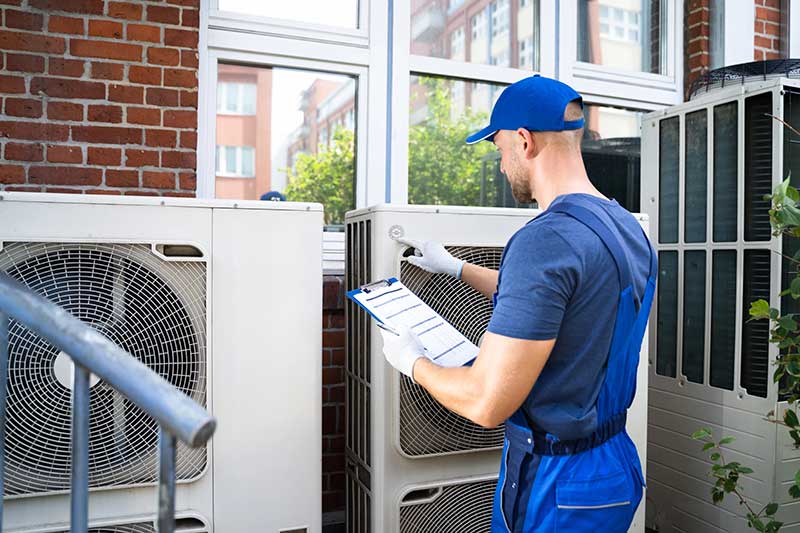The HVAC (Heating, Ventilation, and Air Conditioning) industry is experiencing unprecedented growth. With the increasing demand for energy-efficient systems and a comfortable living environment, the need for skilled HVAC professionals has never been higher. Whether you’re just starting out or a seasoned technician aiming to hone your skills, mastering HVAC can open doors to a rewarding and lucrative career.
This guide will walk you through the essential skills, certifications, tools, and best practices to master HVAC and thrive in this competitive industry.
What Does It Mean to Master HVAC?
To master HVAC doesn’t just mean being skilled at installing or repairing systems. It requires a deep understanding of HVAC concepts, the ability to diagnose problems accurately, familiarity with energy-efficient solutions, and staying up to date with industry trends. Beyond technical know-how, great HVAC professionals possess strong customer service skills, ensuring every client feels valued.
Here’s everything you need to level up and build a successful career in HVAC.
Step 1: Build a Solid Foundation in HVAC Basics
Understanding the fundamentals is crucial before you tackle more advanced tasks.
Learn How HVAC Systems Work
HVAC systems regulate indoor environments by managing temperature, moisture levels, and air quality. The three core functions of HVAC—heating, cooling, and ventilation—rely on intricate components like compressors, evaporators, condenser coils, ducts, and thermostats.
Gain Knowledge of Key Concepts
Make sure you’re familiar with concepts like:
- Refrigeration Cycle – Essential for understanding HVAC cooling systems.
- Airflow Dynamics – To assess system efficiency and duct performance.
- Electricity Basics – A must for troubleshooting electrical issues in HVAC systems.
Enroll in Accredited Programs
You can’t simply learn HVAC skills on the job. Many states require professionals to complete accredited courses through trade schools or community colleges. Look for programs certified by organizations like HVAC Excellence or the Partnership for Air Conditioning, Heating, Refrigeration Accreditation (PAHRA).
Step 2: Get the Necessary Certifications
Certifications are critical to demonstrating your skills and knowledge, making you a more attractive candidate to employers and clients.
Must-Have Certifications
- EPA Section 608 Certification
Federal law mandates this for professionals handling refrigerants. It demonstrates your ability to comply with environmental regulations. - NATE Certification (North American Technician Excellence)
Highly respected in the HVAC industry, this certifies your expertise in installation and service. - R-410A Certification
Necessary for working with modern refrigerants used in energy-efficient systems.
Additional Certifications to Stand Out
- HVAC Excellence Certification
- Green HVAC Certifications (for energy-efficient solutions)
- OSHA Safety Certification
Investing in these will signal that you’re serious about professional growth and safety compliance.
Step 3: Master HVAC Tools and Equipment
Familiarity with tools will save time, improve accuracy, and ensure safety on the job.
Essential Tools for HVAC Professionals
- Multimeter: For measuring electrical circuits.
- Manifold Gauge Set: To monitor refrigerant pressures.
- Refrigerant Recovery Machine: This is for safe refrigerant handling.
- Thermometers and Hygrometers: To measure temperature and humidity.
- Leak Detectors: Pinpoints refrigerant or gas leaks.
Technology and Software
Don’t ignore the importance of HVAC-specific software:
- Smart thermostats and monitoring tools: Gain expertise in smart home solutions like Nest or Ecobee.
- HVAC design software: Tools like Wrightsoft or Elite Software help optimize system designs.
Keeping up with technology empowers you to offer modern solutions to clients.
Step 4: Gain Hands-On Experience
HVAC is a hands-on profession, and practice makes perfect. Here’s how to get the right experience:
- Apprenticeships: Work alongside licensed HVAC professionals to gain real-world experience. Apprenticeships typically last 2–5 years and are invaluable for training.
- Entry-Level Jobs: Use roles as an HVAC helper or assistant to build foundational skills.
- Volunteer Projects: Some community groups welcome hands-on installation and repair work, helping you develop your skills while giving back.
Step 5: Stay Updated with Industry Trends
HVAC is evolving. You must stay informed about new technologies and best practices to remain competitive.
Trends Shaping the HVAC Landscape
- Energy Efficiency: More clients seek energy-efficient solutions due to environmental concerns.
- Smart HVAC Systems: Technology continues to drive demand for systems like smart thermostats that integrate with phone apps for remote control.
- Green Building Standards: Familiarity with regulations like LEED certification is increasingly valuable.
- HVAC for Healthier Air: Indoor air quality (IAQ) solutions like HEPA filters are gaining popularity, especially post-pandemic.
Keep Learning with Continuing Education
Continuing education courses—often provided online or at HVAC trade schools—provide updates on the latest equipment, installation practices, and environmental standards.
Step 6: Develop Soft Skills for Success
Technical expertise is only part of the equation. To become a sought-after professional, prioritize these soft skills:
- Communication: Convey complex concepts to clients in straightforward language.
- Problem-Solving: Effective troubleshooting saves time and boosts reputation.
- Customer Service: A positive attitude during house calls builds trust—and repeat business.
- Time Management: Stick to schedules to maximize productivity.
Why HVAC/R Technicians are in High Demand
The demand for HVAC/R technicians continues to surge as modern society grows increasingly reliant on climate-controlled environments and refrigeration systems. From homeowners investing in energy-efficient solutions to businesses requiring large-scale heating and cooling systems, the need for skilled professionals who can install, maintain, and repair these complex systems is higher than ever.
Additionally, as new eco-friendly technologies emerge and stricter environmental regulations come into play, the expertise of knowledgeable HVAC/R technicians becomes critical for both compliance and sustainability. This combination of technological advancement, growing infrastructure, and environmental responsibility underscores why HVAC/R technicians are essential and highly sought after in today’s job market.
A Career with Endless Opportunities
The HVAC industry presents tremendous opportunities for those willing to work. And with global warming and energy-efficiency mandates reshaping the world, HVAC professionals will remain critical players in creating sustainable indoor environments.
Start by laying a solid foundation, earning your certifications, gaining experience, and staying on top of emerging trends. Whether it’s helping someone achieve the perfect temperature at home or contributing to green building initiatives, HVAC professionals have the power to make a meaningful impact.
Need More Tips?
Want to fast-track your HVAC career? Reach out to industry mentoring programs, trade schools, or online resources to start mastering your craft today. Success is just a certification—and a willingness to learn—away!





